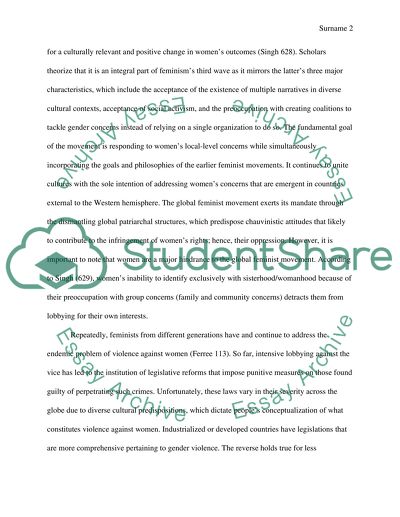Cite this document
(Global Feminism - Transnational Women's Activism, Organizing, and Huma Term Paper, n.d.)
Global Feminism - Transnational Women's Activism, Organizing, and Huma Term Paper. Retrieved from https://studentshare.org/gender-sexual-studies/1666568-women-around-the-globe
Global Feminism - Transnational Women's Activism, Organizing, and Huma Term Paper. Retrieved from https://studentshare.org/gender-sexual-studies/1666568-women-around-the-globe
(Global Feminism - Transnational Women'S Activism, Organizing, and Huma Term Paper)
Global Feminism - Transnational Women'S Activism, Organizing, and Huma Term Paper. https://studentshare.org/gender-sexual-studies/1666568-women-around-the-globe.
Global Feminism - Transnational Women'S Activism, Organizing, and Huma Term Paper. https://studentshare.org/gender-sexual-studies/1666568-women-around-the-globe.
“Global Feminism - Transnational Women'S Activism, Organizing, and Huma Term Paper”, n.d. https://studentshare.org/gender-sexual-studies/1666568-women-around-the-globe.


